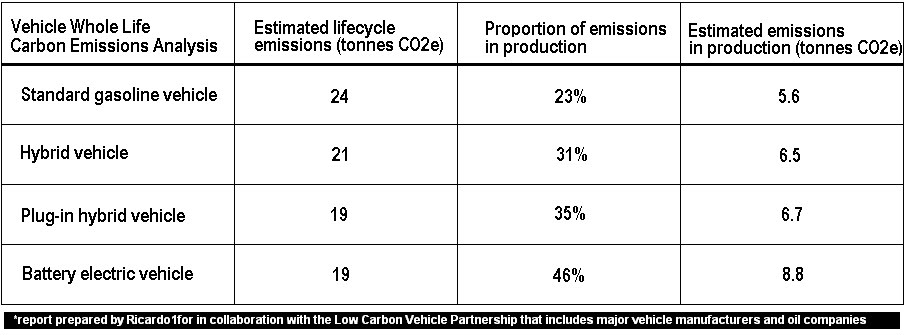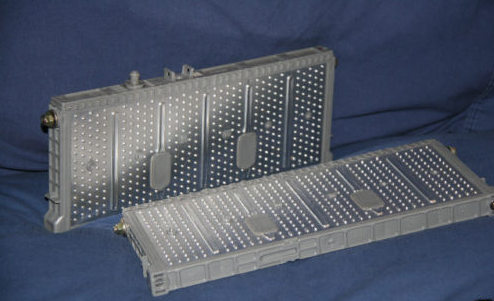More and more, we are demanding a cleaner, greener, environment. Much of the destruction that has been done to the environment comes from transportation, due to the fact that a majority of the vehicles on the road today emit harmful pollutants and waste, such as nitrogen gas, carbon dioxide, and carbon monoxide. With more regulation in the automobile industry to reduce these emissions, companies have responded by developing more efficient vehicles, i.e. Hybrid vehicles. Although doing so will not have a significant impact until all vehicles on the road are hybrid, it still motivates people and other companies to follow suit, either by producing their own version or by buying one for themselves. Together, they are able to reach the common goal. With such a broad range of technology implemented in hybrid vehicles, we’ve come to believe that they are clearly one of the best substitutes one could ask for when trying to build a better environment.
(above is a chart showing what percentage of which pollutant comes from cars)
Vehicles that run on oil and gas are a heavy burden on the environment, releasing chemicals, pollutants, and other wastes. Automobile manufactures are using hybrid vehicles to tackle this problem, as they release fewer and cleaner wastes, resulting in smaller pollution levels. Additionally, the technology in hybrids allow them to be smaller and quieter than traditional vehicles, a good amount of them being nearly silent, such as the Toyota Prius. Through engine-idle technology, energy recycling, and such technology, hybrid vehicles are also more fuel-efficient, boasting mileages that are twenty to thirty percent greater than traditional vehicles, thus allowing us conserve more of those resources.
Although this may so far seem very positive, hybrid cars actually have a significant negative impact on the environment.
To begin, compared to regular vehicles, who conventionally use lead batteries, hybrids use nickel metal hydride batteries. Nickel metal hydride batteries are much more toxic than lead batteries, but are used in hybrid vehicles because they are less problematic. Because they are toxic, challenges arise when trying to recycle or re-manufacture them, as companies try to dispose of this toxicity as efficiently as possible. Hybrids are also more difficult to build, as they are more complex and sophisticated, resulting in more energy used during the process.
Also, many hybrid cars also feature a combustion engine, so in turn although they are not producing as many emissions, there is still a notable amount being released into the environment. The electric engine is used mainly at low speeds or when stopped, so while driving at high speeds, the combustion engine takes over and releases the same wastes as a conventional vehicles. Plug-in hybrids who run on electricity may be harming the environment without even knowing it! Depending on where you charge your vehicle, the electricity that is being pumped in the vehicle may come from a power grid that runs on oil or coal, causing you to be almost as harmful to the environment as someone driving a regular car. Additionally, many hybrid vehicles use copper in their motors and wiring. This copper must be mined, degrading and damaging the environment. When mining for copper, certain areas are cleared of their trees, grasses, and dirt to make room for digging and machinery. And while digging various metals and acids are released as air emissions.
So while hybrid cars may be the solution for a greener environment, many underlying issues need to be solved in order for this to be truly true. With a broad range of the types of hybrid vehicles available on the market today, a majority of them still aren’t as efficient as we’d like them to be, as they still produce emissions and damage the environment when being produced. Within the next decade though, these problems should disappear or become nearly irrelevant.
Sources:
http://greenliving.lovetoknow.com/Hybrid_Vehicles_Negative_Environmental_Impact
http://www.personal.psu.edu/users/s/c/scg5023/
http://www.articlesbase.com/environment-articles/hybrid-cars-positive-effect-on-the-environment-119123.html
http://www.buzzle.com/articles/hybrid-cars-and-the-environment.html
http://www.wpi.edu/Pubs/E-project/Available/E-project-042810-194328/unrestricted/Hybrid_Cars_IQP.pdf
http://www.livestrong.com/article/131833-advantages-hybrid-vehicles-environment/





This is a great article on the environmental impact of hybrid vehicles! It’s clear that hybrids offer a significant advantage over traditional gasoline-powered cars in terms of reduced emissions and fuel consumption. As someone who’s looking to minimize my environmental footprint, I’m strongly considering a hybrid for my next car. However, I’m also aware that sometimes older, less efficient vehicles end up sitting unused in driveways because selling them can be a hassle. If anyone in the Adelaide area is looking to get rid of an unwanted car, I recommend checking out Top Cash for Cars Adelaide. They offer a convenient way to sell your car for cash, regardless of its condition. Plus, it frees up space and ensures your old car gets recycled responsibly. Win-win!